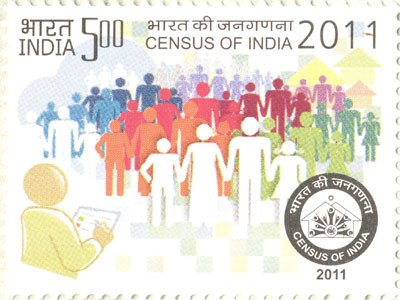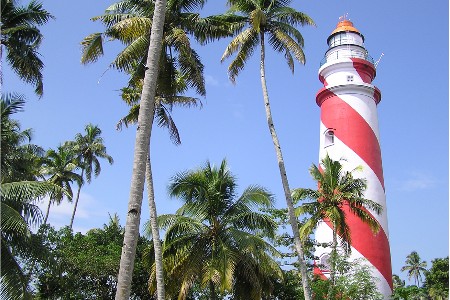|
Senkottai
Sengottai (also known as Shencottah, Chenkotta or Shenkottai) is a town in the Tenkasi district, of Tamil Nadu, India. It is the gateway to southern Tamil Nadu and Kerala. Spread over an area of 2.68 km2 with a population of over 26,823, the economy of the town revolves around the cultivation of rice. History Sengottai was originally part of the Travancore Kingdom. In December 1851, the boundary between Tirunelveli and Travancore on the Sengottai side was clearly defined as proposed by General Cullen as early as 1846, and finally sanctioned by the Madras Government. Sengottai Municipality was constituted in 1921. In 1949, Sengottai was part of the newly formed state of Travancore-Cochin. The States Reorganisation Act, 1956 came into effect from 1 November 1956, and consequently, the Tamil-speaking area of Sengottai taluk of Quilon district were transferred from Travancore-Cochin to Tirunelveli district of Madras State. Sengottai was reclassified from a Grade III muni ... [...More Info...] [...Related Items...] OR: [Wikipedia] [Google] [Baidu] |
States And Territories Of India
India is a federal union comprising 28 states and 8 union territories, with a total of 36 entities. The states and union territories are further subdivided into districts and smaller administrative divisions. History Pre-independence The Indian subcontinent has been ruled by many different ethnic groups throughout its history, each instituting their own policies of administrative division in the region. The British Raj mostly retained the administrative structure of the preceding Mughal Empire. India was divided into provinces (also called Presidencies), directly governed by the British, and princely states, which were nominally controlled by a local prince or raja loyal to the British Empire, which held ''de facto'' sovereignty ( suzerainty) over the princely states. 1947–1950 Between 1947 and 1950 the territories of the princely states were politically integrated into the Indian union. Most were merged into existing provinces; others were organised into ... [...More Info...] [...Related Items...] OR: [Wikipedia] [Google] [Baidu] |
Travancore Kingdom
The Kingdom of Travancore ( /ˈtrævənkɔːr/), also known as the Kingdom of Thiruvithamkoor, was an Indian kingdom from c. 1729 until 1949. It was ruled by the Travancore Royal Family from Padmanabhapuram, and later Thiruvananthapuram. At its zenith, the kingdom covered most of the south of modern-day Kerala ( Idukki, Kottayam, Alappuzha, Pathanamthitta, Kollam, and Thiruvananthapuram districts, and some portions of Ernakulam district), and the southernmost part of modern-day Tamil Nadu (Kanyakumari district and some parts of Tenkasi district) with the Thachudaya Kaimal's enclave of Irinjalakuda Koodalmanikyam temple in the neighbouring Kingdom of Cochin. However Tangasseri area of Kollam city and Anchuthengu near Attingal in Thiruvananthapuram district, were British colonies and were part of the Malabar District until 30 June 1927, and Tirunelveli district from 1 July 1927 onwards. Travancore merged with the erstwhile princely state of Cochin to form Travancore-Cochin in ... [...More Info...] [...Related Items...] OR: [Wikipedia] [Google] [Baidu] |
2011 Census Of India
The 2011 Census of India or the 15th Indian Census was conducted in two phases, house listing and population enumeration. The House listing phase began on 1 April 2010 and involved the collection of information about all buildings. Information for National Population Register (NPR) was also collected in the first phase, which will be used to issue a 12-digit unique identification number to all registered Indian residents by Unique Identification Authority of India. The second population enumeration phase was conducted between 9 and 28 February 2011. Census has been conducted in India since 1872 and 2011 marks the first time biometric information was collected. According to the provisional reports released on 31 March 2011, the Indian population increased to 1.21 billion with a decadal growth of 17.70%. Adult literacy rate increased to 74.04% with a decadal growth of 9.21%. The motto of the census was 'Our Census, Our future'. Spread across 28 states and 8 union territories, t ... [...More Info...] [...Related Items...] OR: [Wikipedia] [Google] [Baidu] |
Christianity
Christianity is an Abrahamic monotheistic religion based on the life and teachings of Jesus of Nazareth. It is the world's largest and most widespread religion with roughly 2.38 billion followers representing one-third of the global population. Its adherents, known as Christians, are estimated to make up a majority of the population in 157 countries and territories, and believe that Jesus is the Son of God, whose coming as the messiah was prophesied in the Hebrew Bible (called the Old Testament in Christianity) and chronicled in the New Testament. Christianity began as a Second Temple Judaic sect in the 1st century Hellenistic Judaism in the Roman province of Judea. Jesus' apostles and their followers spread around the Levant, Europe, Anatolia, Mesopotamia, the South Caucasus, Ancient Carthage, Egypt, and Ethiopia, despite significant initial persecution. It soon attracted gentile God-fearers, which led to a departure from Jewish customs, and, a ... [...More Info...] [...Related Items...] OR: [Wikipedia] [Google] [Baidu] |
Islam
Islam (; ar, ۘالِإسلَام, , ) is an Abrahamic religions, Abrahamic Monotheism#Islam, monotheistic religion centred primarily around the Quran, a religious text considered by Muslims to be the direct word of God in Islam, God (or ''Allah'') as it was revealed to Muhammad, the Muhammad in Islam, main and final Islamic prophet.Peters, F. E. 2009. "Allāh." In , edited by J. L. Esposito. Oxford: Oxford University Press. . (See alsoquick reference) "[T]he Muslims' understanding of Allāh is based...on the Qurʿān's public witness. Allāh is Unique, the Creator, Sovereign, and Judge of mankind. It is Allāh who directs the universe through his direct action on nature and who has guided human history through his prophets, Abraham, with whom he made his covenant, Moses/Moosa, Jesus/Eesa, and Muḥammad, through all of whom he founded his chosen communities, the 'Peoples of the Book.'" It is the Major religious groups, world's second-largest religion behind Christianity, w ... [...More Info...] [...Related Items...] OR: [Wikipedia] [Google] [Baidu] |
Hinduism
Hinduism () is an Indian religion or '' dharma'', a religious and universal order or way of life by which followers abide. As a religion, it is the world's third-largest, with over 1.2–1.35 billion followers, or 15–16% of the global population, known as Hindus. The word ''Hindu'' is an exonym, and while Hinduism has been called the oldest religion in the world, many practitioners refer to their religion as '' Sanātana Dharma'' ( sa, सनातन धर्म, lit='the Eternal Dharma'), a modern usage, which refers to the idea that its origins lie beyond human history, as revealed in the Hindu texts. Another endonym is ''Vaidika dharma'', the dharma related to the Vedas. Hinduism is a diverse system of thought marked by a range of philosophies and shared concepts, rituals, cosmological systems, pilgrimage sites, and shared textual sources that discuss theology, metaphysics, mythology, Vedic yajna, yoga, agamic rituals, and temple building, among other to ... [...More Info...] [...Related Items...] OR: [Wikipedia] [Google] [Baidu] |
Orders Of The Government Of Tamil Nadu
Order, ORDER or Orders may refer to: * Categorization, the process in which ideas and objects are recognized, differentiated, and understood * Heterarchy, a system of organization wherein the elements have the potential to be ranked a number of different ways * Hierarchy, an arrangement of items that are represented as being "above", "below", or "at the same level as" one another * an action or inaction that must be obeyed, mandated by someone in authority People * Orders (surname) Arts, entertainment, and media * ''Order'' (album), a 2009 album by Maroon * "Order", a 2016 song from ''Brand New Maid'' by Band-Maid * ''Orders'' (1974 film), a 1974 film by Michel Brault * ''Orders'', a 2010 film by Brian Christopher * ''Orders'', a 2017 film by Eric Marsh and Andrew Stasiulis * ''Jed & Order'', a 2022 film by Jedman Business * Blanket order, purchase order to allow multiple delivery dates over a period of time * Money order or postal order, a financial instrument usually intende ... [...More Info...] [...Related Items...] OR: [Wikipedia] [Google] [Baidu] |
Madras State
Madras State was a state of India during the mid-20th century. At the time of its formation in 1950, it included the whole of present-day Tamil Nadu (except Kanyakumari district), Coastal Andhra, Rayalaseema, the Malabar region of North and central Kerala, Bellary, South Canara and Kollegal. Coastal Andhra and Rayalaseema were separated to form Andhra State in 1953, while South Canara and Bellary districts along with the Kollegalam taluka of Coimbatore district were merged with Mysore State, and Malabar District with the State of Travancore-Cochin to form Kerala in 1956. Post State Reorganization in 1956, the remaining Madras State was renamed to Tamil Nadu on January 14, 1969. History After Indian Independence, the Madras Presidency became the Madras Province on 15 August 1947. On 26 January 1950, it was formed as Madras State by the Government of India. As a result of the 1956 States Reorganisation Act, the state's boundaries were re-organized following linguistic line ... [...More Info...] [...Related Items...] OR: [Wikipedia] [Google] [Baidu] |
Kollam District
Kollam district (), (formerly Quilon district) is one of 14 districts of the state of Kerala, India. The district has a cross-section of Kerala's natural attributes; it is endowed with a long coastline, a major Laccadive Sea seaport and an inland lake (Ashtamudi Lake). The district has many water bodies. Kallada River is one among them, and the east side land of river is East Kallada and the west side land is West Kallada. Overview Kallada Boat race is one of the famous festival events of the district. Even though it is a competition between two land sides of the river, many boat clubs from various places, even beyond the district participate in the event. Kollam is the capital of Kerala's cashew industry. Plains, mountains, lakes, lagoons, and backwaters, forests, farmland and rivers make up the topography of the district. The area had trading relationships with Phoenicia and Ancient Rome. Climate Kollam's temperature is almost steady throughout the year. The average te ... [...More Info...] [...Related Items...] OR: [Wikipedia] [Google] [Baidu] |
States Reorganisation Act
The States Reorganisation act, 1956 was a major reform of the boundaries of India's States and territories of India, states and territories, organising them along linguistic lines. Although additional changes to India's state boundaries have been made since 1956, the States Reorganisation Act of 1956 remains the single most extensive change in state boundaries after the independence of India. The Act came into effect at the same time as the Constitution (Seventh Amendment) Act, 1956, which (among other things) restructured the constitutional framework for India's existing states and the requirements to pass the States Reorganisation Act, 1956 under the provisions of Part I of the Constitution of India, Part I of the Constitution of India, Article 3. Political integration after independence and the Constitution of 1950 British Raj, British India, which included present-day India, Pakistan, Bangladesh and Myanmar, was divided into two types of territories: the British India, ... [...More Info...] [...Related Items...] OR: [Wikipedia] [Google] [Baidu] |

.jpg)

